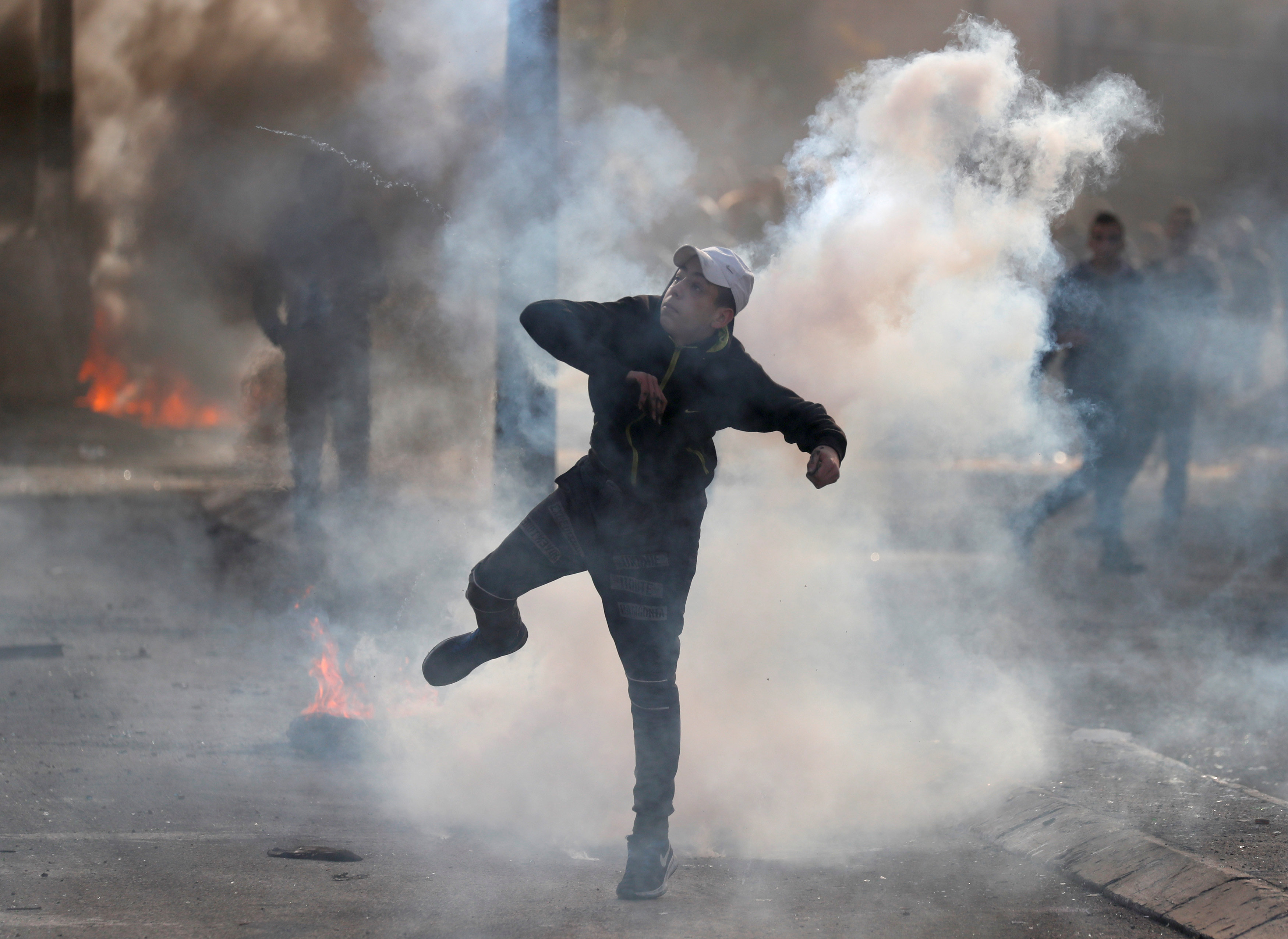
By Steve Holland and Yara Bayoumy
DAVOS, Switzerland (Reuters) – U.S. President Donald Trump threatened on Thursday to withhold aid to the Palestinians if they did not pursue peace with Israel, saying they had snubbed the United States by not meeting Vice President Mike Pence during a recent visit.
Trump, speaking after a meeting with Israeli Prime Minister Benjamin Netanyahu at the World Economic Forum, said he wanted peace. However, his remarks could further frustrate the aim of reviving long-stalled Israeli-Palestinian talks.
Palestinians shunned Pence’s visit to the region this month after Trump recognized Jerusalem as Israel’s capital and vowed to begin moving the U.S. embassy to the city, whose status is at the heart of the Israeli-Palestinian conflict.
Trump’s endorsement in December of Israel’s claim to Jerusalem as its capital drew universal condemnation from Arab leaders and criticism around the world. It also broke with decades of U.S. policy that the city’s status must be decided in negotiations between Israel and the Palestinians.
“When they disrespected us a week ago by not allowing our great vice president to see them, and we give them hundreds of millions of dollars in aid and support, tremendous numbers, numbers that nobody understands — that money is on the table and that money is not going to them unless they sit down and negotiate peace,” Trump said.
The United States said this month it would withhold $65 million of $125 million it had planned to send to the U.N. agency that helps Palestinian refugees. The UNRWA agency is funded almost entirely by voluntary contributions from U.N. states and the United states is the largest contributor.
A spokesman for Palestinian President Mahmoud Abbas said the United States had taken itself “off the table” as a peace mediator since it recognized Jerusalem as Israel’s capital.
“Palestinian rights are not up to any bargain and Jerusalem is not for sale. The United States can’t have any role unless it retreats its decision to recognize Jerusalem as Israel’s capital,” spokesman Nabil Abu Rdainah told Reuters by phone from Jordan.
Abbas has called Trump’s Jerusalem declaration a “slap in the face” and has rejected Washington as an honest broker in any future talks with Israel. Abbas left for an overseas visit before Pence arrived.
Abbas has said he would only accept a broad, internationally backed panel to broker any peace talks with Israel. The U.S. Ambassador to the U.N., Nikki Haley also criticized Abbas.
Israel’s government regards Jerusalem as the eternal and indivisible capital of the country, although that is not recognized internationally. Palestinians see East Jerusalem as the capital of a future Palestinian state.
Speaking in Davos, Israeli Prime Minister Benjamin Netanyahu said only the United States could broker a peace deal.
“I think there’s no substitute for the United States. As the honest broker, as a facilitator, there’s no other international body that would do it,” Netanyahu said.
Trump said Palestinians had to come to the negotiating table.
“Because I can tell you that Israel does want to make peace and they’re going to have to want to make peace too or we’re going to have nothing to do with them any longer,” Trump said.
Trump said his administration had a peace proposal in the works that was a “great proposal for Palestinians” which covers “a lot of the things that were over the years discussed or agreed on”, without providing specifics.
Trump said his declaration on Jerusalem took it off the negotiating table “and Israel will pay for that”, adding “they’ll do something that will be a very good thing” without elaborating.
Earlier at the World Economic Forum, Jordanian King Abdullah said Jerusalem had to be part of a comprehensive solution.
He said Trump’s decision had created a backlash, frustrating Palestinians who felt there was no honest broker.
But he added: “I’d like to reserve judgment because we’re still waiting for the Americans to come out with their plan.”
King Abdullah’s Hashemite dynasty is the custodian of the Muslim holy sites in Jerusalem, making Jordan particularly sensitive to any changes of status there.
The last talks collapsed in 2014, partly due to Israel’s opposition to an attempted unity pact between Palestinian factions Fatah and Hamas, and because of Israeli settlement building on occupied land that Palestinians seek for a state, among other factors.
Palestinians want the West Bank for a future state, along with East Jerusalem and the Gaza Strip. Most countries consider as illegal the Israeli settlements built in the territory which Israel captured in the 1967 Middle East war.
Israel denies its settlements are illegal and says their future should be determined in peace talks.
The United States has said it would support a two-state solution if the Israelis and Palestinians agreed to it.
(Additional reporting by Ali Sawafta in RAMALLAH, Ari Rabinovitch in JERUSALEM, Michelle Nichols at the UNITED NATIONS and Noah Barkin and Dmitry Zhdannikov in DAVOS; Writing by Yara Bayoumy; Editing by Mark Bendeich)








